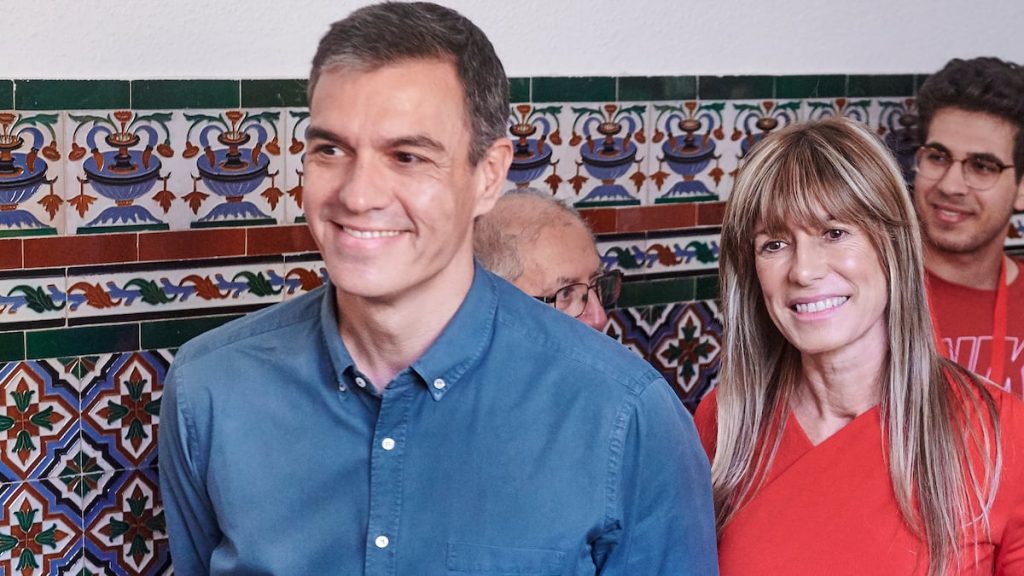After his letter to the citizens, we could joke that Sanchez knows how to connect bridges and take time off work like no one else, point out that we have the first president in history who retires from spiritual exercises, or show our envy for someone who has achieved the golden dream of contemporary society: to step away from our public agenda for a few days, and if pushed, even our private one. However, lightness is not only rare among us; it is also a reason for reproach as it implies a cold distance in a moment of grief with blows. At a time when we are not allowed to be arbitrators, but can only be “committed observers” —as Aron wanted— as long as that commitment is unquestionable identification with a contender. Opinion ceases to be critical to become solely militant and any will for understanding or description will be suspect of angelism. Spain has been experiencing exceptional circumstances in recent years, but the seriousness of an unprecedented moment would advise against being rough or allowing oneself to be roughened, or at the very least, that institutional actors stop tweeting at each other’s throats for a moment. Of course, this is like demanding world peace while singing “Imagine,” but it is an innocence that must be affirmed: the poisoning of the opinion sphere has effects that we are already feeling. Unfortunately, it must be concluded, with more melancholy than surprise, that perhaps that is what it is all about, and from what we have seen in recent years, whoever reigns over this chaos is always Sánchez.
With the letter to the citizens, Sanchez once again takes the initiative and rearranges the pieces on the board just as he did after the general elections in 2023. The sentimental excuse may be true or false, although it is hard to believe in the politician who, after making a legend of his ability to survive, has a skin of incomparable resistance to abrasion. It would be appreciated if empathy—thinking of the harassment of Barberá or Arrimadas—never turned into ideological divisions. However, it is a very useful excuse at a time of rough electoral struggles with the Catalan and European elections approaching in weeks. Many voters will be seduced by his unusual emotional dimension. His own party will, as has been seen, rally around the president to enhance his leadership. Additionally, the perception of an unfair attack on his figure—and his family—will also serve to tempt the left of the left, currently disoriented, to support the most visible bastion in the fight against reactionary forces. The Catalan elections themselves thus take on a more national dimension, and therefore more favorable to him. And it distracts attention from judicial investigations—and parliamentary commissions—to redirect suspicion towards a dark alliance between judges, media, and parties. The opposition’s strategy of shaking things up is left in disarray. And for a few days or weeks, the president focuses all public conversation on himself. My prediction: he will not resign, but will seek to once again emerge as a champion of progressivism against “the right and the far right.” It worked for him recently. It may work for him again now: we already know that only Sanchez reigns over chaos. It is another matter whether we deserve this chaos.
By subscribing to continue reading, one can delve deeper into the complexities and implications of Sanchez’s actions and their impact on the political landscape. The manipulation of public opinion, the strategic positioning ahead of elections, and the diversion of focus from legal issues all play a role in shaping the narrative. The author predicts that Sanchez is unlikely to step down and will instead try to solidify his image as a progressive leader in the face of opposition from the right and far right. The chaos surrounding him seems to be a constant, with his ability to navigate and emerge from it unscathed being a defining trait. The analysis points towards a calculated move by Sanchez to assert his influence and control in the midst of turbulent times, turning attention towards himself and away from other pressing matters. Despite the melodic image of unity and peace, the reality is a complex web of power struggles and image management, where Sanchez appears to hold the upper hand in maintaining his position and relevance in the political arena.


